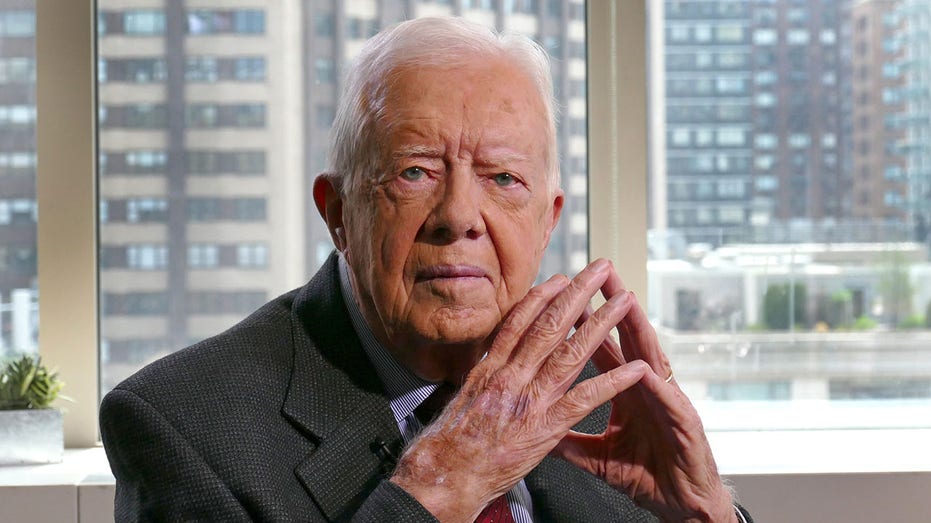DOUG SCHOEN: Jimmy Carter provided a model for the post-presidency
Political consultant Doug Schoen reflects on the remarkable life of Jimmy Carter, who died Sunday at age 100.

With the passing of former President Jimmy Carter at 100, we may now take the full measure of the man. The 39th president's legacy is that of a role model for us all, regardless of party, ideology, world view or position in life. Quite simply, Jimmy Carter led a heroic life and, for many, represents everything that’s right about public service. His was a life well lived.
I say this as a fellow Democrat who disagreed with Carter on his policies in the Middle East and in countries like Venezuela. But I say it not to criticize the former president, but rather to underscore his unbending commitment to principle, integrity and in unfailingly doing what he believed was the right thing.
JIMMY CARTER REMEMBERED FOR HIS INTEGRITY AND DEVOTION TO HUMANITY
Carter's life reads like a storybook. He was a military leader and hero, a successful farmer and businessman, and a governor who was a trendsetter on civil rights. He did all this while understanding the concerns of those now known as the ultra-MAGA voters in America. Perhaps his greatest accomplishment was winning the presidency in 1976 on a simple program of convincing the American people that he was an outsider, a fresh face and someone who, in his words, "would never lie to you."
His sole term in the White House saw a number of great successes as well as well-documented failures. He was most successful in the Middle East with the signing of the Camp David Accords. He gave back the Panama Canal and signed a nuclear arms reduction treaty with Russia. His failures were most notably the economic crisis that spawned the term "stagflation," and, of course, the Iranian hostage crisis and botched rescue attempt. His term also saw an energy crisis that burdened Americans with sky-rocketing gas prices and long lines at the gas pumps.
It is important also to know that Carter was a man of faith and God. He was private in his religious beliefs but also compassionate and committed in the most humble of ways possible. He taught Sunday School in his hometown of Plains, Ga., both before and after his presidency with little public notice or awareness.
Carter’s marriage to Rosalynn was a model for us all. It was a partnership that lasted 77 years, apparently without stress or discord but with a joint commitment to the private and public values they both shared and a desire to advance their worldview and values.
CLICK HERE FOR MORE FOX NEWS OPINION
But it’s probably most important to note that Carter’s greatest accomplishment, after losing in a landslide to Ronald Reagan in 1980, was setting up the Carter Center, dedicated to promoting world peace. He was able to continue to work on the Israel-Palestinian crisis. He conducted peace negotiations around the world, helped to oversee contentious elections and political change as well as working to eliminate the scourge of highly infectious and contagious diseases.
This model of a post-presidency was and is something that set the stage for what others, including former President Bill Clinton, did post-presidency. After leaving the White House, Carter stimulated a period of extra-legal and judicial activism that produced both the presidential medal in 1999 and a Nobel Peace Prize in 2002.
But as I reflect on President Carter’s life, perhaps his final momentous decision, to go into hospice care in February of 2023, sends a powerful and profound message about end-of-life care and the decisions that we will all inevitably have to make.
By embracing the final chapter in his life with such grace and dignity, former Carter did something that I thought was almost impossible: He raised his own stature and served as a role model for us all, while providing a degree of leadership and service that, I think it’s fair to say, is unmatched in American political and civic life.



